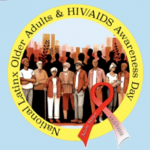People with HIV who develop frailty have a higher risk of multiple health problems as well as an elevated risk of death, Healio reports.
HIV-positive individuals tend to develop frailty at a younger age than the general population, for whom passing age 65 is associated with a greater risk for the condition.
Publishing their findings in Clinical Infectious Diseases, researchers studied a cohort of 216 people with HIV, including 821 men and 195 women, who had a median age of 51 years old. Forty-six percent of the participants were in their 40s when they entered the study, at which point 91 percent were on antiretrovirals (ARVs) and virally suppressed.
The study authors evaluated frailty in the cohort using Fried’s frailty assessment, which considers five factors: weak grip, slow gait speed on a four-meter walk, self-reported weight loss, exhaustion and limitations in the ability to engage in vigorous physical activity. Meeting three or more of these criteria indicated frailty.
At their first assessment, 38 percent of the participants were considered pre-frail and 6 percent were frail.
Nineteen percent of the participants saw their frailty score increase in one or more component during the first 48 weeks of follow-up.
The participants were followed for a median 4.0 years. Twenty-seven participants (12.5 percent) died a median 22.8 months into the study, for a death rate of 0.7 deaths per 100 cumulative years of follow-up.
Overall, participants experienced 84 diabetes health events, 61 bone-disease health events and 43 cardiovascular disease (CVD) health events, for respective rates per 100 cumulative years of follow-up of 2.58, 1.65 and 1.23 events.
After adjusting the data for various factors, the researchers found that having frailty at the study’s outset was associated with a 3.83-fold increased risk of a CVD diagnosis and a 2.29-fold increased risk of diabetes during follow-up. Frailty was also associated with a trend toward bone-related health events, but it was not quite statistically significant, meaning it could have occurred by chance.
An increase in frailty during the first 48 weeks of the study was associated with a 3.78-fold increased risk of death.
“Incorporation of frailty assessments into the routine care of [people with HIV] may assist in improvement of functional status and risk stratification for age-related chronic diseases,” the study authors concluded.
To read the Healio article, click here.
To read the study abstract, click here.







Comments
Comments